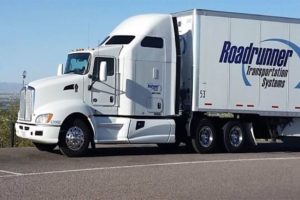
According to the SEC’s Feb. 14 cease-and-desist order, from at least July 2013 through January 2017, Roadrunner manipulated its financial reports to hit prior earnings guidance and analyst projections. Specifically, Roadrunner “hid incurred expenses by improperly deferring them and spreading them over multiple quarters to minimize their impact on Roadrunner’s net earnings, avoided writing down assets that were worthless and receivables that were uncollectable, and manipulated earnout liabilities related to Roadrunner’s acquisitions which, in practical effect, created an income ‘cushion’ that could be accessed in future quarters to offset expenses,” the SEC’s order stated.
In January 2018, following a yearlong internal investigation into the allegations, Roadrunner announced in a regulatory filing that it had materially misstated its financial results in its earnings releases, earnings calls, and quarterly and annual reports from at least the second quarter of 2013 through the third quarter of 2016.
Roadrunner’s investigation “identified accounting errors that impacted substantially all financial statement line items and disclosures and identified material weaknesses in its internal control over financial reporting,” the SEC order stated. Roadrunner overstated its net income by at least $66 million and had to re-evaluate its goodwill and other intangibles resulting in non-cash impairment charges of $373.7 million, the order added.
Roadrunner disclosed to the SEC that it had concealed the fraud from its independent directors, the audit committee, and independent auditor. It also shared with SEC staff the results of its internal investigation and provided information regarding its remedial efforts, the SEC said.
Roadrunner’s remedial efforts included terminating those responsible for the misconduct and enhancing its internal controls. “Among other things, pursuant to Roadrunner’s agreement with its current lender, Roadrunner has retained an outside consulting firm to provide additional financial oversight, with a focus on accounts receivable and payables,” the SEC order stated.
“Roadrunner also implemented a new compliance program that includes a whistleblower hotline, employee policy and training updates, a new bad debt review process, and monthly reconciliation of accounts receivable aging to the general ledger balance,” the SEC order continued.
In September 2019, the U.S. District Court for the Eastern District of Wisconsin approved a class-action settlement against Roadrunner, alleging securities law violations arising from Roadrunner’s restatements. Roadrunner paid $20 million, $16.4 million of which was distributed to shareholders.
CFO Found Guilty
In July, 2021, a federal jury convicted Roadrunner’s former chief financial officer, Peter Armbruster, for his role in the complex securities and accounting fraud. The former CFO was convicted on four counts of violating federal securities laws for his role in scheme. Armbruster was convicted of one count of securities fraud, one count of misleading the company’s auditors and two counts of falsifying Roadrunner’s books and records. He was found not guilty on 11 additional charges.
The Wisconsin jury found former controllers for Roadrunner’s truck loading division, Mark Wogsland and Brett Naggs, not guilty on all charges.
Without admitting or denying the findings, Roadrunner agreed to cease and desist from committing or causing any future violations of these provisions and to pay disgorgement of $7 million and prejudgment interest of $2.5 million, which the SEC deemed satisfied by the 2019 class-action settlement. ![]()
Jaclyn Jaeger is a contributing editor at Compliance Chief 360° and a freelance business writer based in Manchester, New Hampshire.

